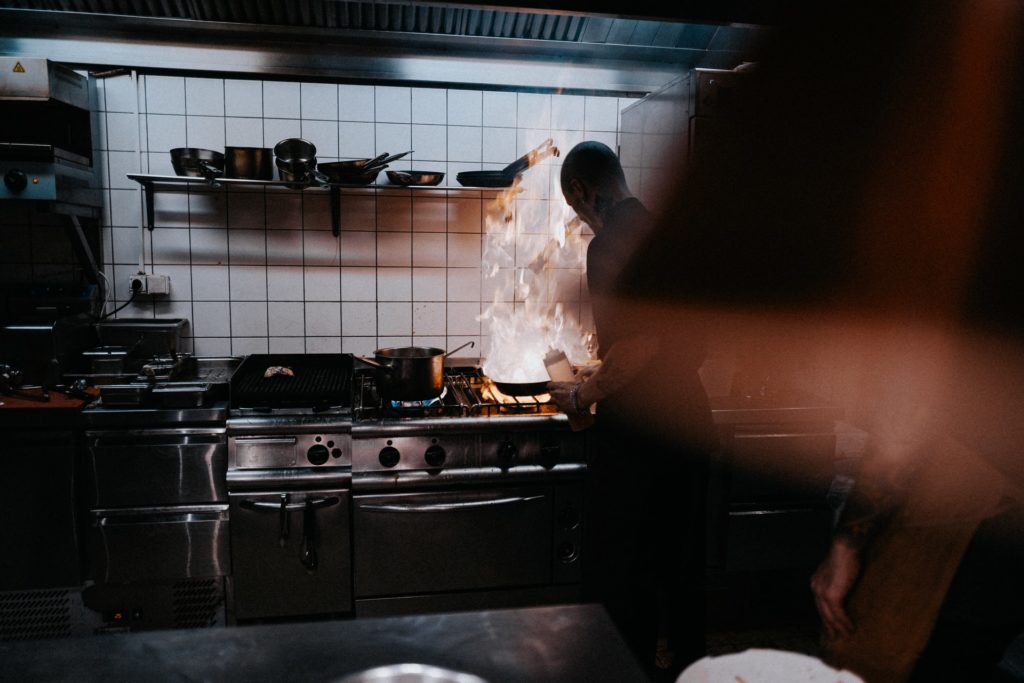Sharp knives, hot plates, fire on the stoves, and tight spaces… there are several hazards in the restaurant kitchen that cause business owners millions of dollars every year. Accidents and injuries happen so often that restaurant kitchens are always short of staff and manpower because someone always got burned. Your commercial kitchen should be safe for customers and staff all the time. It sounds so simple, but it’s a critical component of running a restaurant business.
Train Your Employees
Each of your staff members must follow safety procedures and guidelines. To maintain a safe working environment, your employees must be made aware of the safety procedures in the kitchen. Where should they put the kitchen equipment after using it? What electrical sockets should be used for what equipment? Basic food and sanitation practices are a must for every commercial kitchen.
It’s not just about preventing accidents and injuries in the kitchen. It’s also about handling allergens and preventing cross-contamination. Your customers expect you to handle their food well, to ensure that proper kitchen hygiene is being observed.
Use the Right Material for the Flooring
An epoxy flooring for food processing is the right type of material for a commercial kitchen. This keeps the kitchen floor safe, durable, and easy to clean. Sanitation is the most important factor in a restaurant kitchen, so epoxy flooring paves the way for that. Cracks and potholes are all too common in concrete flooring. These can lead to the growth of mold and bacteria. Preventing that is very important when it comes to a commercial kitchen since contamination of food because of the presence of mold will result in lawsuits after lawsuits. Your restaurant can close down simply because you did not use the right floor material.
Listen to Your Employees’ Feedback
How many hours do you spend in the restaurant kitchen? Now, how many hours do your employees spend there? Although you want to believe you know the ins and outs of your business better than anyone else, the truth is that unless you spend eight to 10 hours of your day there, you’ll never know it as much as your employees do. A true leader knows how to listen to his or her staff. You will get a real picture of the dangers that they face in the kitchen once you start listening to their feedback.
Streamline Your Menu
It is normal for restaurant owners to want to impress their diners with unique dishes and an extensive menu. The question is, can your kitchen handle it? There’s no use for you to offer dishes that your kitchen and staff cannot handle. The more complicated your menu is and the more your kitchen is pressured to produce dishes beyond its capacity, the more likely it is for the staff to get into accidents. Everything in your menu should be something that your kitchen and staff can handle efficiently. Anything beyond their capacity will only be an undue burden to your staff.
Install Fire Safety Equipment
No business should be able to operate without fire safety equipment such as a fire extinguisher. In the United States, an average of 5,600 restaurant fires happens every year. The kitchen staff should be trained enough not to panic during these situations. Instead, they should think on their feet and try to stop the fire. They can only do this if they have the right fire safety equipment in the kitchen.
Aside from having the right equipment, you should also train your staff on how to handle such incidences. The kitchen needs to implement a fire safety procedure such as keeping flammable objects away from flame and switching off the power sources when not in use. Of course, they also need to follow the evacuation plan if the fire gets too big that the extinguisher can no longer stop it from spreading.
Provide Safety Equipment for Your Employees
Sure, the kitchen has the equipment it needs. There’s also a safety manual for everyone to follow. But do you provide safety gear for your employees? In the kitchen, a host of different accidents can happen—from fire to oil spills to slipping on the floor. But if your staff has safety gear such as protective glasses, gloves, and heat-resistant potholders and aprons, then there will be fewer injuries.
The safety of your business, employees, and diners depends on the safety measures and policy you put in place. It is also not possible not to spend money on your commercial kitchen’s safety needs. If there is one investment that you need to make, the safety of your business is on top of that list.

